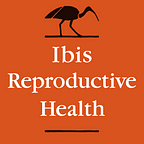Everything you need to know about Opill, the first over-the-counter birth control pill in the US
The Free the Pill coalition, operated by Ibis Reproductive Health, has been working to bring birth control pills over the counter in the United States since 2004. Learn more about Free the Pill here.
What is over-the-counter birth control and how does it work?
Over-the-counter (OTC) birth control is a contraceptive product that can be accessed on the shelf at a store or online without having to get a prescription from a provider. Birth control pills are a type of contraceptive that has been available over the counter in over 100 countries worldwide for decades, and the first-ever OTC birth control pill recently became available in the United States in 2024.
What is Opill?
Opill is a progestin-only birth control pill that was approved by the US Food and Drug Administration (FDA) in July 2023 and is now available in retail stores across the country and online at opill.com.
How is Opill different from other birth control pills?
Opill is a progestin-only birth control pill (POP), meaning that it contains only one hormone: progestin. The other kind of birth control pill, called the combined oral contraceptive (COC), contains two hormones: progestin and estrogen. While there are many types of POPs and COCs that are available in the United States, Opill is the only birth control pill that is currently available over the counter — no prescription needed.
Is Opill safe to use?
Opill is safe for almost everyone, including people who are breastfeeding, people with migraines, and smokers. However, if you are pregnant or have breast cancer, you should not take Opill. In a study of Opill users, participants were able to read the product label and understand whether Opill was right for them.
How effective is Opill?
When taken as directed, Opill is 98% effective, making it the most effective type of birth control available over the counter in the US.
Can I get Opill without talking to a provider?
Opill is approved for use without a prescription, and you do not need to talk to a healthcare provider to access it. However, if you have questions or want more information, you can ask a pharmacist, contact your provider, or call 1–877–414–6859.
Are there any side effects?
The most common side effect of POPs like Opill are changes in menstrual bleeding. In a study of Opill users, most participants felt the changes in menstrual bleeding they experienced was acceptable, or they were neutral about it. Other possible but less common side effects may include headaches, dizziness, nausea, increased appetite, abdominal pain, cramps, or bloating.
Can I use Opill to treat endometriosis, regulate my period, or control acne?
Opill is intended to prevent pregnancy, and it may reduce menstrual bleeding and cramping for some users. If you are interested in treating endometriosis, regulating your period, or controlling acne, it’s best to speak with a health care provider to learn more about your options.
Does Opill have a “placebo” week of pills?
No. Opill should be taken every day, at as close to the same time as possible. There are no placebo pills, and Opill’s label instructs not to skip pills when taking Opill. You can learn more about how to take Opill from the package leaflet.
Where can I get Opill?
Opill is available for sale online and on the shelf at most major retailers. It’s also available at opill.com.
How much does Opill cost?
The suggested retail price for Opill is $19.99 per one-month pack, $49.99 for a 3-month pack, and $89.99 for a 6-month pack. However, each retailer can set their own price.
Can I get Opill for free or at a discounted price?
Opill has a consumer assistance program which allows qualified users to receive the product for free. You can learn more about the program, and see whether you qualify, at opillCAP.com. Also, you may be able to get a discount if you subscribe to receive Opill at opill.com or other online retailers.
Does my insurance cover Opill?
Most private insurance plans are required to cover FDA-approved methods of contraception without costsharing (e.g., deductible, copayment). However, under current federal guidance, insurers can — and often do — require a prescription to obtain insurance coverage for birth control pills.
Eight states — California, Illinois, Maryland, New Jersey, New Mexico, New York, Oregon, and Washington — have laws requiring OTC coverage without a prescription. If you live in one of these states, check with your insurance company directly to find out if Opill is covered. Your pharmacist may also know if Opill is covered. Even if you don’t live in one of those states, you may be able to get reimbursed for Opill through your insurance plan’s HSA (health savings account) or your employer’s FSA (flexible spending account). And if you are covered by a Medicaid plan, check with your plan to see if Opill is covered. Medicaid plans can cover Opill even if there is not a state law. You may also be able to find this information online by checking your insurance plan’s drug formulary, which is typically included in the summary of benefits and coverage.
